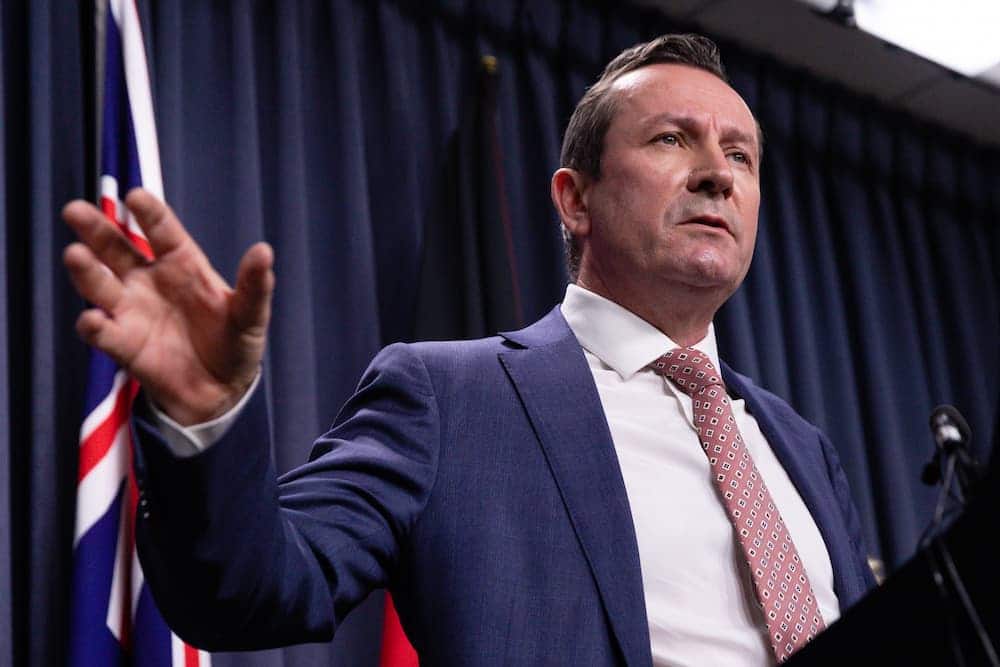Western Australia will begin to ease its hard borders on 5 February, finally reconnecting the state to the rest of nation.
The announcement by Premier Mark McGowan on Monday has ended months of speculation and frustration for locked-out families.
The state first introduced the unprecedented hard borders with other states in April 2020, with entry and exit controls lasting more than 600 days.
WA’s borders are currently closed or heavily restricted to every state or territory except Tasmania.
Mr McGowan said the tough restrictions had enabled WA residents to live normal lives inside the state’s COVID-free bubble.
“We followed a different model to the others, and it’s worked,” he told reporters.
Under the eased restrictions in place from 12.01am on 5 February, all domestic arrivals aged 12 and over into WA must be double vaccinated unless they have a medical exemption.
Testing requirements will be based on the length of trips, with people visiting for six days or more required to get a negative PCR result within 72 hours of departure, and take another test within 48 hours of arrival.
Those in WA for five days or less will only have to get a negative test within 72 hours of departure.
WA residents who leave the state and return within five days must take a test within 48 hours of returning home.
International arrivals will also have to return a negative PCR test before they depart, and undertake a second test within 48 hours of arriving, as well as on day six.
If overseas travellers are double vaccinated they will not have to quarantine, but if they are unvaccinated or have not had an approved vaccine, they will have to quarantine for 14 days.
Mr McGowan said a cap would be imposed on unvaccinated arrivals.
The state’s double-dose vaccination rate for residents 12 and over reached 80 per cent on Monday, and it’s anticipated the vaccination rate will have climbed to 90 per cent by 5 February.
“Many people have family abroad that they’ve been unable to see for nearly two years, I’m sure this date will be a cause for relief or even celebration,” Mr McGowan said.
Transitional restrictions will include a requirement to wear face masks in high-risk indoor settings such as public transport, hospitals and aged care facilities.
Proof of vaccination will be required to attend large events with crowds of more than 1000 people, as well nightclubs, major stadiums and the casino.
Entry to remote Indigenous communities will remain restricted and contact registers will still be used.
Mr McGowan warned that the Pilbara was one of several regions in WA with a low vaccination rate, which if it does not lift above 80 per cent by 5 February, would see more restrictions imposed on unvaccinated people.
State and federal leaders were briefed by the chief health officer about the Omicron variant at Friday’s national cabinet meeting and told that while the new variant was more transmissible, it was likely to be less severe.
AAP
Get all the latest Canberra news, sport, entertainment, lifestyle, competitions and more delivered straight to your inbox with the Canberra Daily Daily Newsletter. Sign up here.



